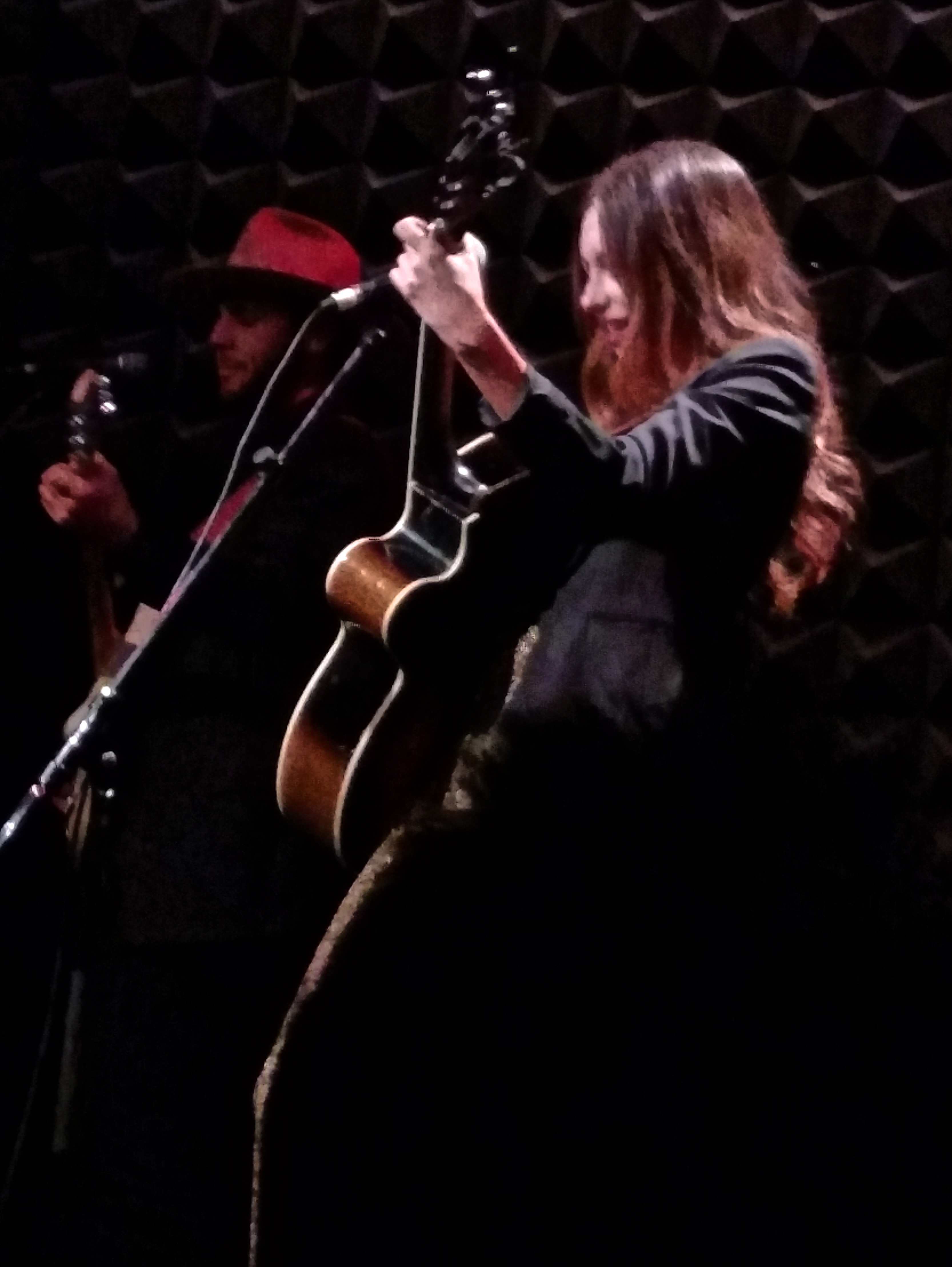Start with her name and her voice. They both speak of country and its close cousins folk and Americana. The name implies a pedigree that, so far as I know, is coincidental (assuming it is not a stage name: other than that she is from Georgia and went to certain schools, her available bios are, for this day and age, remarkably slight). Her voice recalls Kline, Lynn, Parton, and the early Neko Case, and has, of course, its own timbre and distinctiveness, as do her compositions, which are most of what she sings. Have You Heard of Lera Lynn? asks the title of her first album, and now I have, for it is of her that I am talking.
It was the second of two sold-out shows at Joe’s Pub that introduced me to her: a collaboration with T Bone Burnett on music for the TV series True Detective, and a recurring cameo on the same, as a singer, have netted her a following. I have not seen the show, but she would be good enough reason to tune in. I imagine that she is telegenic, with her willow frame and narrow-faced smile like a figure out of El Greco. More important is a voice of unblemished richness, punctuating the watery flow of her tunes with an insistent, rocklike drive.
Loss, usually romantic, is a staple of country, the public airing, with vulnerability, of a private emotion. The songs she sings are shot through with the theme. Some of them feel like exercises – gorgeous wonderful exercises – in form (the triviality of her patter, which never relates a song to personal experience, contributes to this impression). So she’s at her best when she upends the convention, as she did Thursday night with “Whiskey.” Drowning sorrow in drink is a familiar motif, but sorrow, in a country song, is a good swimmer and never goes under. Lynn, by contrast, conveys the pleasure of the drink, its slow, warm passage through the body and the brain; liquor is smooth and so is her voice; and between them there is no bar. The song is an upheaval of the convention: it speaks of loss but is really about pleasure.
The curse of an artist’s best work is that it can expose what might be missing in the rest of it. Lynn would benefit from a little edge in her banter, or at least an assurance that she knows as well as sings about loss. But if loss and sorrow she doesn’t really share with us, desire, another country staple, be it for liquor or sex, she feels publicly and conveys in song. To a cover of Springsteen’s “Fire,” a classic of desire frustrated but still, possibly, fulfillable, she brought something a little sly and a lot powerful, putting a crackle into the single word “fire,” like cinders crumbling and licked by flame. It complements her smooth-as-whiskey voice and fits a little better with her cheerful psychology, for desire, unlike sorrow, implies hope. Pleasure and hope aren’t bad emotions to leave an audience with; it’s fine that the felt loss that would give them added impact is yet to come.
For more on Lera Lynn, click here. She performs Nov. 4, 2016, at (l)e poisson rouge. Go to Joe’s Pub for information on upcoming events at that venue.
